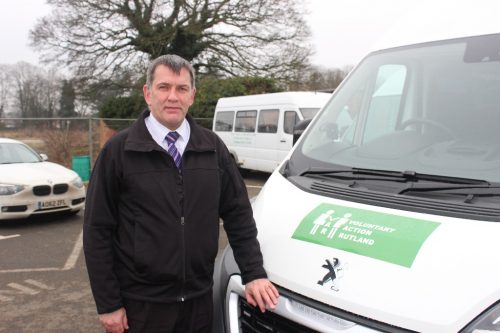
James Day visits Jim Freeborough at Voluntary Action Rutland, who explains how the smallest county in the country is still a challenging but rewarding environment to operate in
Voluntary Action Rutland (VAR), based at the Rutland Volunteer Centre in the town of Oakham, provides vital transport for the isolated communities in the county’s many villages and hamlets. It is challenging operating territory for any transport provider, and an area where mainstream buses are few and far between.
Jim Freeborough, who has managed the operation over the last seven year, has made use of his background in transport to help grow the organisation. While it remains a small group, with three vehicles actively in service, it is very busy and makes use of a large team of passionate volunteers.
Jim began his career in the military, where he was in the Royal Corps of Transport/Royal Logistics Corps for 25 years.
“I’ve always had a transport and logistics background,” he explained.
“After leaving the army I worked for a few transport firms, including ATS. I felt one of things I was lacking was commercial experience, particularly on the truck side, so I decided to try my hand at it.
“Then the job at VAR came up. I thought I could put some of the knowledge I had gathered over the years into making it a more successful community and social transport provider.
“It was undeniably a successful before I arrived, but […]
What you get with a subscription
- Operator & Supplier Profiles
- Face-to-Face Interviews
- Lastest News
- Test Drives and Reviews
- Legal Updates
- Route Focus
- Industry Insider Opinions
- Passenger Perspective
- Vehicle Launches
- and much more!


